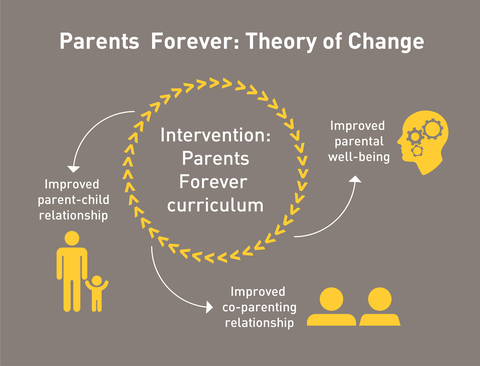Extension helps separated and divorced parents keep their children’s needs at the center of their relationship
Divorce can be a difficult and painful journey to go through, even when the path leads to a place of thriving. For the past 25 years, University of Minnesota Extension has helped make the experience better, especially for children, by supporting family resilience during divorce, separation and custody change.
Parents Forever reaches parents and caregivers through referrals from court systems concerned about contentious divorce situations. The program is offered online and in-person with Extension-trained facilitators and is available in many community settings.
Mary Matteson, Fergus Falls community education director, has facilitated the course as an Extension-trained instructor since its inception. “It works,” she says. “The course is about how you and your co-parent will care for your children now that you are not together, but it’s like that metaphor of how flight attendants say you have to put on your own oxygen mask first. I like to start with lessons about taking care of yourself because parents are so overwhelmed at first.”
Phyllis Onstadt knows the feeling. The now-retired Extension educator was one of the curriculum authors in 1997. Although she was a family and financial educator at the time, she felt despair when faced with her own divorce. “As an educator, I searched for educational programs that could help make sense of all these aspects of divorce,” she says. “There were none.”
To develop the Parents Forever course, Onstadt and colleagues like retired educator Minnell Tralle spoke with judges, social workers, financial advisors and mental health experts about ways to reduce the negative impact of divorce on children.
They decided on separate attendance of sessions for each parent before having them interact to create a mutually agreed-upon parenting plan.
“The curriculum has stood the test of time,” says Ellie McCann, an Extension family resiliency educator who is involved in keeping the curriculum up to date and training facilitators. “It helps all kinds of families, including blended families with all of those complexities.”
“I have learned a lot of different strategies and tools to help me not only be the parent that I want and need to be but also how to get through my divorce with a positive outcome.” —Parents Forever participant
Parents Forever supports families
Six months after taking the Parents Forever course:
- 98% of participants said that they had adjusted their parenting to better meet the needs of their children.
- 94% said they had used or somewhat used one of the co-parenting strategies they learned.
- 96% of parents said they never or seldom talked negatively about the other parent in front of their children.
Parents who took Parents Forever reported a variety of positive changes in their parenting . They also reported an increase in their children’s social behaviors like helping others.
Games parents play
When parents learn how dysfunctional behaviors affect their children negatively, they open up to healthier alternatives taught through the Parents Forever course. Those behaviors can include:
- Merry Mom, or Disneyland Dad: Parents buy children lots of presents or let them stay up late, as they want time with them to be a blast and to be the preferred parent.
- I Spy and the Secret Keeper: Parents ask children about the life of the other parent and who they are seeing, making kids feel tugs of loyalty. Or a parent asks kids to keep secrets from the other parent.
- Messenger: One parent asks a child to send information to the other parent about plans, pick-up times and changes in plans that could be bad news.
- Put Down: One parent tells the child insulting things about the other parent, such as that they are bad with money or that they don’t care about anything but their favorite sport.
Renter 101
Finding and keeping a home is an important step in maintaining a stable home environment. Extension’s free online Renter 101 course gives participants an overview of the tools and strategies needed to secure housing, helping ensure they become responsible renters by learning:
- How to manage money resources wisely to pay rent on time every month.
- How to choose adequate, safe and affordable housing.
- How to communicate effectively.
- How to maintain a home.
- How to navigate the rental process. This includes learning about screening, lease agreements, security deposits and moving out.
This course requires no registration and takes about one hour to complete. Participants receive a certificate and can return to the course as often as needed.

Taking care of yourself under stress
Managing stress begins with self-care. Fortunately, there are many things you can do at home and on your own schedule to support your mental health.





